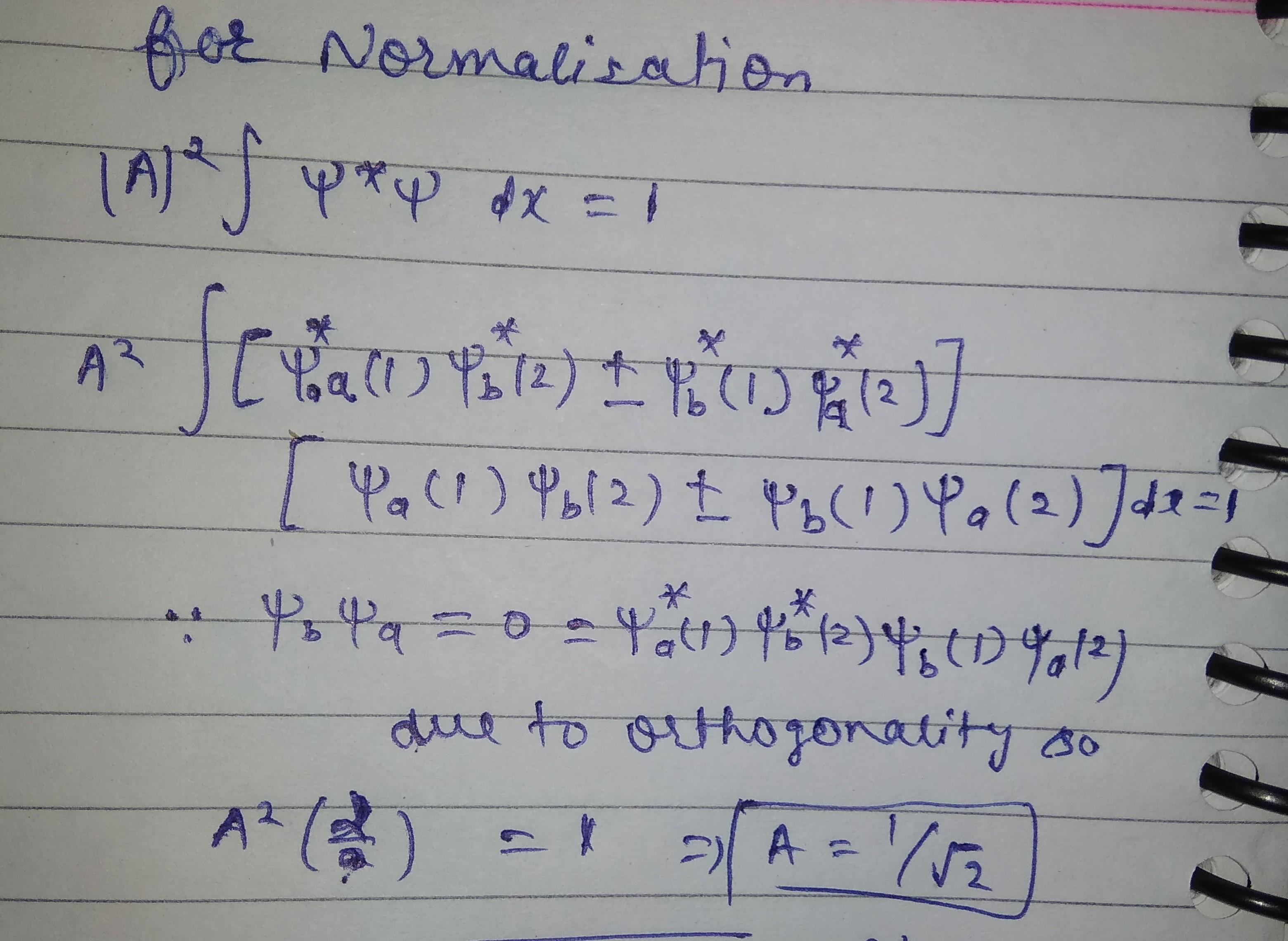Time management is very much important in IIT JAM. The eduncle test series for IIT JAM Mathematical Statistics helped me a lot in this portion. I am very thankful to the test series I bought from eduncle.
Nilanjan Bhowmick AIR 3, CSIR NET (Earth Science)Samveel Ansari posted an Question
- IIT JAM
- Physics (PH)
Let y (1, 2) = a[v,, (1) w, (2) t v. (1) u. (2)]. find the real value of a which normalises y (1, 2) in this equation. (a) (c) (b) 3 2 2 (d) none of these
Let y (1, 2) = A[v,, (1) w, (2) t v. (1) u. (2)]. Find the real value of A which normalises y (1, 2) in this equation. (A) (C) (B) 3 2 2 (D) None of these
- 0 Likes
- 3 Comments
- 0 Shares
-
![comment-profile-img]() >
>
-
![comment-profile-img]() >
>
![eduncle-logo-app]()
if u have confusion plz ask
![eduncle-logo-app]()
see that
![eduncle-logo-app]()
it will help u
![eduncle-logo-app]()
The two functions are orthogonal if and only if their inner product is equal to zero but in question it is not mention either their the inner product is zero or they are orthogonal
![eduncle-logo-app]()
dear for fermions or identical particles they are always orthogonal
![eduncle-logo-app]()
but mam here it is not mentioned that the particle is either electron or fermion or Boson it should be treated as particle only ........... then what will we do???
![eduncle-logo-app]()
dear as we know identical particle either bosonic or fermionic in nature. we can't normalise it without consideration that states are orthogonal
![eduncle-logo-app]()
and as we know this is problem from identical particles so we have to consider it
![eduncle-logo-app]()
thank you mam................................mam I am uploading one more question please give me Hint in that also faster
![eduncle-logo-app]()
here it is👆👆👆
![eduncle-logo-app]()
dear i have already answered it as u posted it earlier
![eduncle-logo-app]()
check it
-
Mahak
![best-answer]()
ans is a it is simple just normalis it you will get ans
![eduncle-logo-app]()
Ma'am if I can do it then why I upload this???plz solve it
![eduncle-logo-app]()
see attached
![eduncle-logo-app]()
for any doubt you can ask
![eduncle-logo-app]()
mam how can we know that two functions are orthogonal as you have done in above solution ................... and simply condition for orthogonal functions is <ø1|ø2>= 0
Do You Want Better RANK in Your Exam?
Start Your Preparations with Eduncle’s FREE Study Material
- Updated Syllabus, Paper Pattern & Full Exam Details
- Sample Theory of Most Important Topic
- Model Test Paper with Detailed Solutions
- Last 5 Years Question Papers & Answers
Sign Up to Download FREE Study Material Worth Rs. 500/-










 >
>










Dhairya sharma
see this
this also help u